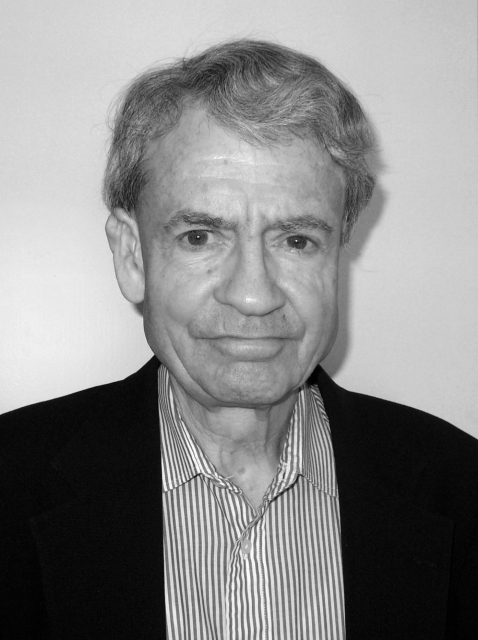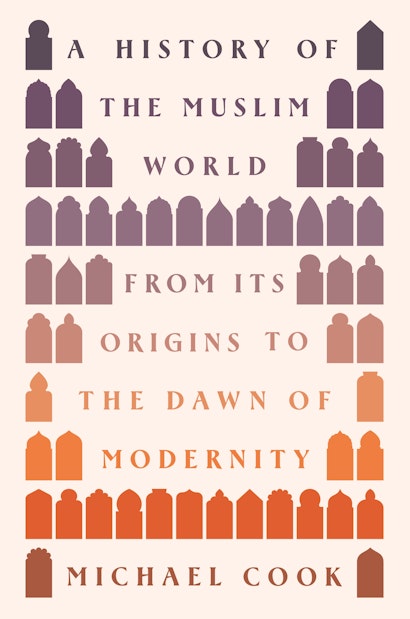You’ve written a book covering about twelve centuries of the history of a region that extends from the Atlantic to the Pacific. How did you manage to become an expert on such a broad area?
MC: I didn’t, so I can only claim expertise on parts of it. Perhaps it was unwise to write such a book. But I’ve reached a point in my career where wisdom no longer gets me promotions or salary raises.
So what made you write the book?
MC: One thing is that over the years I’ve accumulated a large fund of material in the course of teaching students about the history of the Muslim world. So what am I to do with it? I suppose I could arrange to be buried with it, like the ancient Chinese officials who were interred with copies of the regulations they had spent their lives enforcing. But somehow that doesn’t catch my fancy. An alternative is to reshape these materials into a book, and that’s the kind of thing I’ve done before, on the whole with reasonably good outcomes. So that’s what I decided to do, I forget how many years back.
Any other reasons?
MC: Well, there are rewards to looking at the history of the Muslim world across space and time the way I do in the book. Think of this: each time Islam arrives in a new region it starts an interaction with the already-existing traditions of the people who live there. After you’ve been exposed to several examples of these interactions from different parts of the Muslim world, you begin to get the hang of them, and that’s rewarding.
Could you give us an example?
MC: You’ve maybe heard of Islam on the island of Java. There you had an elite in the agriculturally rich interior that adopted Islam, yet preserved much of its pre-Islamic court culture. For example, a key role in the legitimation of rulers was played by the Goddess of the Southern Ocean, who reputedly maintained a submarine palace somewhere off the south coast. If you go to my book you’ll find some racy details about the days—and nights—these rulers spent with her. In our time, as you might expect, the Goddess of the Southern Ocean is in trouble with the pietists, but her defenders—they still exist—say she has converted to Islam and learnt Arabic.
So are you saying that what happened in the interior of Java is typical of the interactions between an incoming Islam and pre-existing traditions?
MC: Not at all. It’s more like it’s one end of a spectrum. At the other end are cases where the indigenous traditions are far less salient, if they’re visible at all. You won’t find anything like the Goddess of the Southern Ocean in the lowlands of Iraq, for example.
What accounts for differences like that? Why does it sometimes go one way and sometimes the other?
MC: One major factor—just one—is how Islam arrives. Islam brought by a conquering army can play out very differently from Islam spread by merchants going about their business. That’s one way geography matters: it was virtually impossible for pre-modern armies to cross the Sahara or the Indian Ocean, but by no means impossible for merchants to do that.
All that makes sense on the assumption that Islam entered each society from somewhere else. But isn’t there one crucial case where that didn’t happen, unless perhaps the somewhere else was heaven? I’m referring to the emergence of Islam in western Arabia without which there would have been no such thing as an Islamic world. Why do you think it happened?
MC: As you might expect, I talk about that quite a lot in the book. The central idea in my thinking is one I borrowed from Nicholas Taleb—the metaphor of the Black Swan Event. In case you’ve forgotten the stir his book made, a Black Swan Event combines three features. The first is unpredictability—nobody could have seen it coming. The second is extreme impact—it changes the course of history. And the third is that in retrospect we try to make sense of such events by concocting spurious explanations, which is what the Dean of the Faculty pays me a salary to do. Taleb sees the emergence of Islam as a Black Swan Event, and I think he’s right. But for the rest of the book we’re overwhelmingly in White Swan territory.
Something quite different. You must have written about a lot of people in this book; who is your favorite?
MC: Hm. Maybe it’s a certain Spanish Muslim whose life was upended by the Christian Reconquista. In 1243 the Christian king invited him to convert to Christianity and stay on. The Muslim responded with a polite no and left, but before he went he explained his decision: all his life he had tried to serve one God, and done a really lousy job of it, so he just didn’t think he had the bandwidth to serve three gods. And while my mind’s running on Spanish Muslims—or ex-Muslims—I can’t help thinking of Beatriz, a Morisca slave who did remarkably well for herself in sixteenth-century Peru.
So how did that happen?
MC: Well, if you read the book you’ll find out. She’s on page 732.
Michael Cook is the Class of 1943 University Professor of Near Eastern Studies at Princeton University. His books include Ancient Religions, Modern Politics: The Islamic Case in Comparative Perspective (Princeton), A Brief History of the Human Race, and The Koran: A Very Short Introduction.

